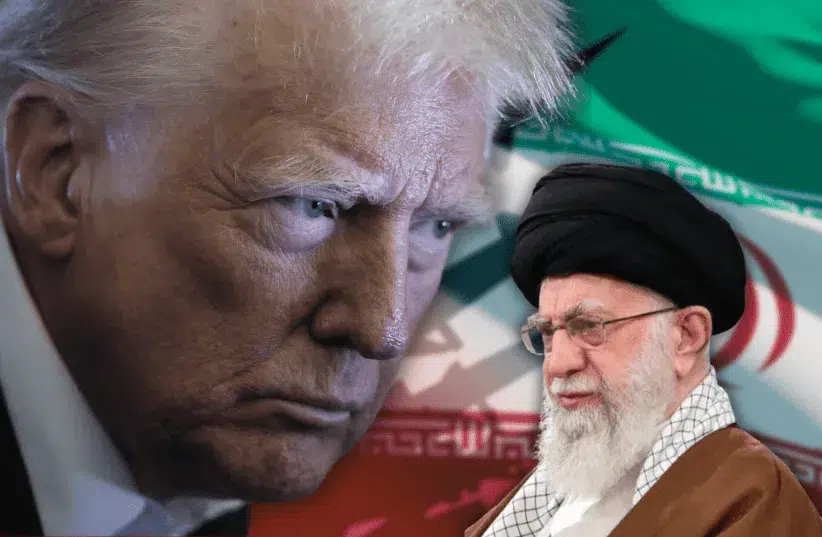White House Issues Ultimatum to Iran: “Strike a Nuclear Deal or Face Hell to Pay”
Tensions Rise as Trump Administration Takes Hard Line on Iran Nuclear Program
The diplomatic chess game between Washington and Tehran escalated dramatically on Tuesday as the White House delivered what many foreign policy experts are characterizing as an ultimatum to the Iranian regime. This development marks a significant turning point in an already volatile relationship between the two nations.
White House Press Secretary Delivers Stern Warning to Tehran
During the daily press briefing, White House Press Secretary Karoline Leavitt made no attempt to soften the administration’s stance, bluntly stating that Iran must choose between diplomatic negotiations and severe consequences.
“The president has reimposed crippling sanctions on the Iranian regime, and he has made it very clear to Iran that they have a choice to make,” Leavitt declared to the assembled press corps. “You can strike a deal with the president, you can negotiate, or there will be hell to pay.”
Leavitt’s comments reinforced the administration’s position with an ominous warning: “As the president said yesterday, if they don’t choose to move forward with diplomacy and a deal—which is the direction we do not see them headed in—there will be grave consequences today.”
Trump Announces “Very Big Meeting” on Nuclear Program
This heightened rhetoric follows President Trump’s announcement on Monday that the United States and Iran would engage in direct talks regarding Tehran’s nuclear ambitions. The president characterized the upcoming diplomatic engagement as a “very big meeting” with significant implications.
In typical direct fashion, Trump emphasized the non-negotiable nature of these talks, stating they “cannot fail because Iran would be in great danger.” He further clarified the administration’s red line, asserting that Iran “can’t have a nuclear weapon.”
The Stakes in US-Iran Nuclear Diplomacy
The current standoff represents the latest chapter in a long and complicated history of US-Iran relations, which has seen numerous attempts at nuclear diplomacy over the past two decades.
Historical Context of Nuclear Negotiations
Previous diplomatic efforts, including the 2015 Iran Nuclear Deal (officially known as the Joint Comprehensive Plan of Action or JCPOA), temporarily established a framework for limiting Iran’s nuclear program in exchange for sanctions relief.
According to the International Atomic Energy Agency, which monitors nuclear activities worldwide, Iran’s compliance with international agreements has fluctuated significantly in recent years, raising concerns about potential nuclear weapons development.
Economic Impact of Sanctions
The “crippling sanctions” referenced by Press Secretary Leavitt have indeed taken a substantial toll on Iran’s economy. Economic analyses from the World Bank indicate that sanctions have significantly impacted Iran’s oil exports, currency value, and overall economic stability.
What This Means for Regional Stability
Foreign policy experts warn that the outcome of these negotiations could have far-reaching implications for Middle East security. The potential for escalation has already prompted responses from key regional players.
International Reaction to Rising Tensions
Israel, Saudi Arabia, and other Gulf states have closely monitored developments, with many expressing support for a diplomatic solution that effectively prevents Iran from developing nuclear weapons capability.
European allies have generally advocated for renewed diplomatic engagement, though some have privately expressed concern about the confrontational tone coming from Washington.
The Path Forward: Diplomacy or Confrontation?
As both nations prepare for what President Trump has called a “very big meeting,” the international community watches with bated breath. The outcome could determine whether the region moves toward de-escalation or further conflict.
Expert Analysis on Diplomatic Prospects
“The stark language from the White House suggests limited patience for protracted negotiations,” notes Dr. Sarah Mitchell, director of the Center for Nuclear Security at Georgetown University. “However, history shows that successful nuclear diplomacy typically requires sustained engagement rather than ultimatums.”
Stay Informed: Critical Updates on US-Iran Relations
Don’t miss crucial developments in this rapidly evolving diplomatic situation. Sign up for our foreign policy newsletter to receive expert analysis and breaking news alerts on US-Iran relations and nuclear security issues.
Our team of international relations specialists provides context and insight beyond the headlines, helping you understand the full implications of these high-stakes negotiations.



